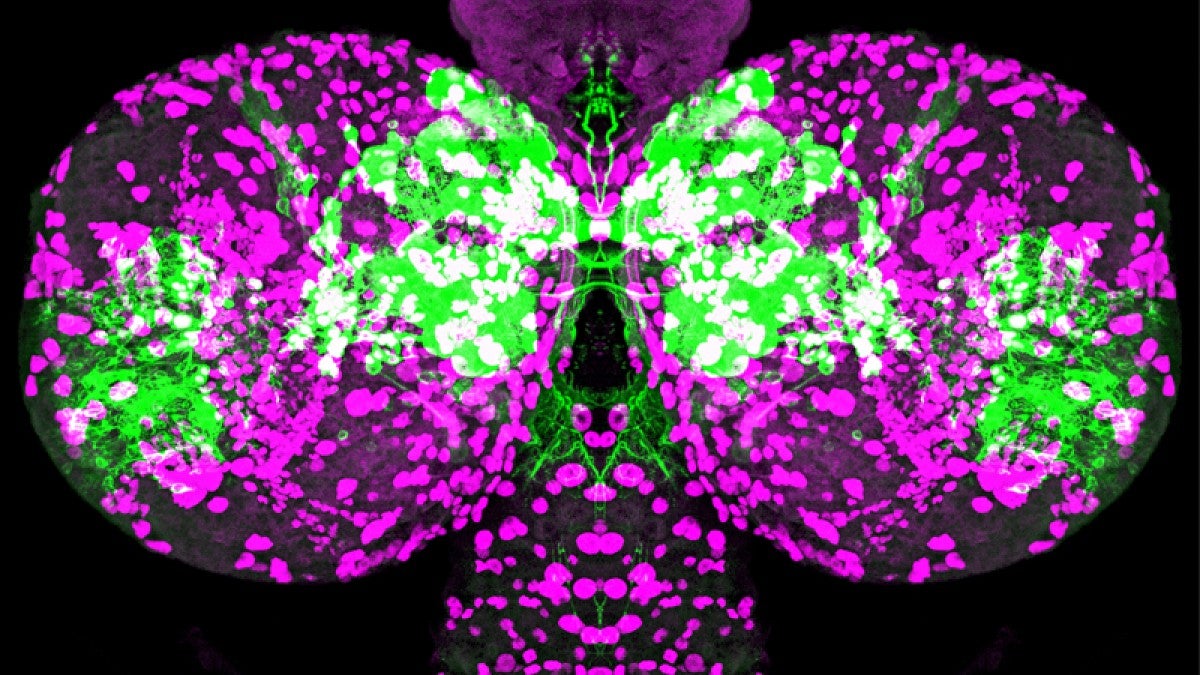A hormone’s newly discovered role in early brain development in fruit flies offers insight into maternal hypothyroidism, a rare condition that threatens the health of pregnant women and their developing babies, say UO scientists.
The potential connection comes from research in the lab of UO biologist and neuroscientist Chris Doe, who earlier this month was elected to the National Academy of Sciences. A three-member team studying fruit flies identified a steroid hormone that triggers a vital molecular transition in which neural stem cells begin producing neurons to build the brain.
RELATED LINKS
The hormone in the fruit fly is essentially the equivalent of the human thyroid hormone, said postdoctoral researcher Mubarak Hussain Syed, who led the study.
“Our finding is the first example of hormones regulating time-sensitive gene transitions during neurogenesis, and it offers exciting insights into how problems with hormone signaling could be implicated in neurological diseases,” Syed said. "During gestation, the deficiency of thyroid hormone can result in severe neurological defects, mental retardation and irreversible fetal brain damage."
The discovery, a significant advance for scientists studying genetic processes involved in cell division and brain development, was detailed in a paper in the journal eLife.
Normal thyroid production in humans controls food metabolism, which, in turn, regulates body temperature and heart rhythm. When thyroid levels are too low, pregnant women are at risk for miscarriage, hypertension and premature birth.
A human fetus requires thyroid from the mother during its first 12 weeks. Brain development begins in the third week of gestation. Babies whose mothers go undiagnosed or untreated for hypothyroidism are at risk for poor brain development and subsequent learning disabilities.
Because the hormones in the fruit flies and in humans are similar, their activities at crucial times in development are important for gaining insights into many human diseases that arise when things go wrong.
“Fruit flies allow us to study brain development in a simpler organism with a shorter life cycle and a more accessible brain, yet one that shares a great deal of genetic information with humans,” said Syed, who is based in the UO Institute of Neuroscience and Institute of Molecular Biology, where he works with Doe.
“Human brain development requires similar transitions in the type of neurons made by neural stem cells during fetal development,” Doe said. “Failure to make the full, diverse complement of neurons would be catastrophic for brain development.”
Brandon Mark, a graduate student in biology, also was a co-author on the eLife paper.
The National Institutes of Health, through grants to Doe and Mark, and the Howard Hughes Medical Institute funded the research.
—By Jim Barlow, University Communications


